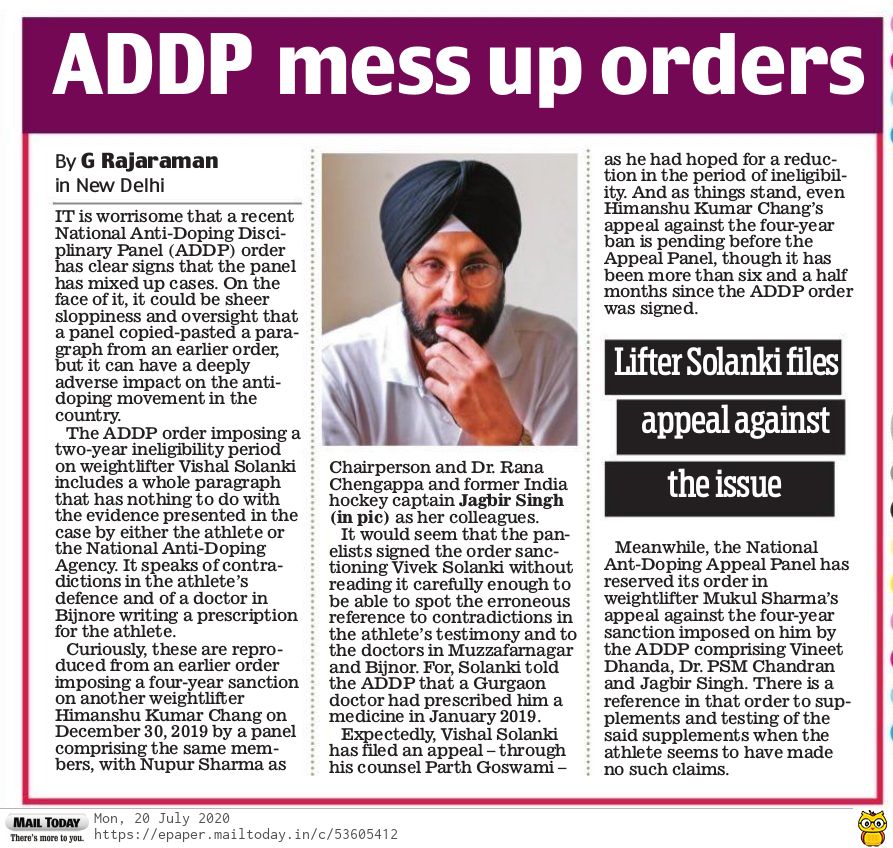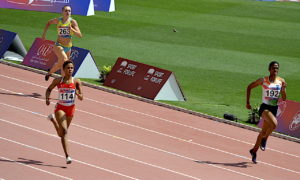
This article first appeared in Mail Today of July 20, 2020
G Rajaraman
It is worrisome that a recent National Anti-Doping Disciplinary Panel (ADDP) order has clear signs that the panel has mixed up cases. On the face of it, it could be sheer sloppiness and oversight that a panel copied-pasted a paragraph from an earlier order, but it can have a deeply adverse impact on the anti-doping movement in the country.
The ADDP order imposing a two-year ineligibility period on weightlifter Vishal Solanki includes a whole paragraph that has nothing to do with the evidence presented in the case by either the athlete or the National Anti-Doping Agency. It speaks of contradictions in the athlete’s defence and of a doctor in Bijnore writing a prescription for the athlete.
Curiously, these are reproduced from an earlier order imposing a four-year sanction on another weightlifter Himanshu Kumar Chang on December 30, 2019 by a panel comprising the same members, with Nupur Sharma as Chairperson and Dr. Rana Chengappa and former India hockey captain Jagbir Singh as her colleagues.
It would seem that the panelists signed the order sanctioning Vivek Solanki without reading it carefully enough to be able to spot the erroneous reference to contradictions in the athlete’s testimony and to the doctors in Muzzafarnagar and Bijnor. For, Solanki told the ADDP that a Gurgaon doctor had prescribed him a medicine in January 2019.
Expectedly, Vishal Solanki has filed an appeal – through his counsel Parth Goswami – as he had hoped for a reduction in the period of ineligibility. And as things stand, even Himanshu Kumar Chang’s appeal against the four-year ban is pending before the Appeal Panel, though it has been more than six and a half months since the ADDP order was signed.
Meanwhile, the National Ant-Doping Appeal Panel has reserved its order in weightlifter Mukul Sharma’s appeal against the four-year sanction imposed on him by the ADDP comprising Vineet Dhanda, Dr. PSM Chandran and Jagbir Singh. There is a reference in that order to supplements and testing of the said supplements when the athlete seems to have made no such claims.
The NADA Anti-Doping Rules specify that the hearing should be completed expeditiously and in all cases within three months of the date of the decision of the AntiDoping Disciplinary Panel, save where exceptional circumstances apply. At a time when hearings are being held online, it should be possible for the Appeal Panels to consider and dispose of pending cases.
It would be fair to expect that panels exercise great care in dealing with the case and greater care in spelling their orders out. And, ensure that the timelines prescribed in the NADA Anti-Doping Rules are followed. For, slack work by the hearing panels will affect the credibility of India’s anti-doping disciplinary process.







